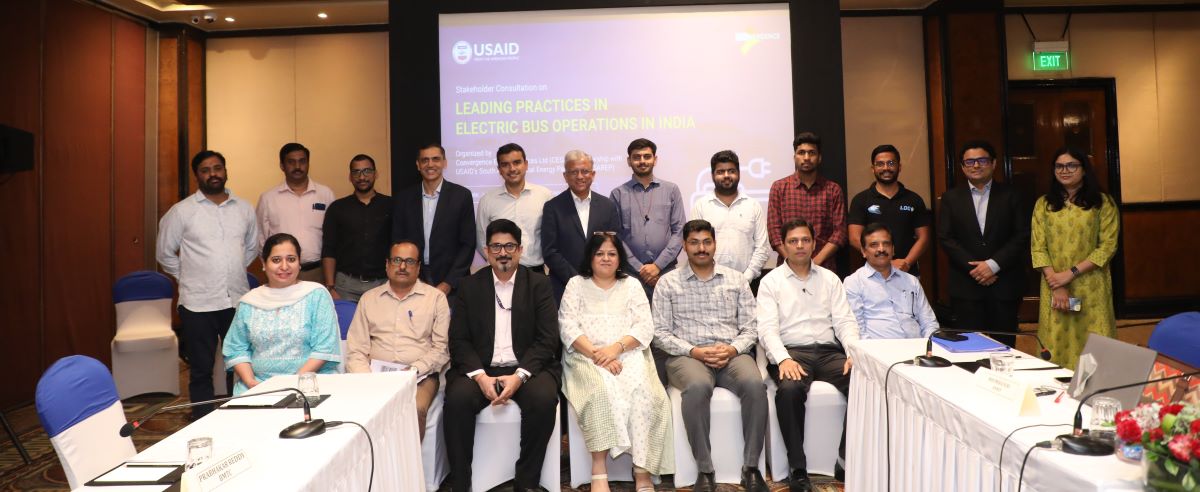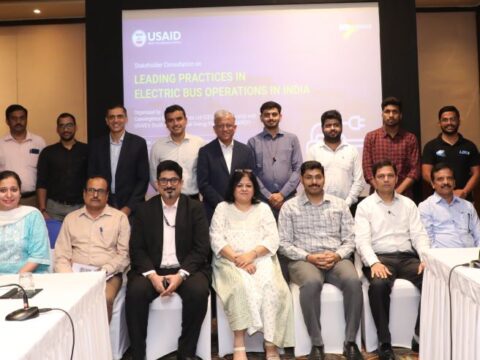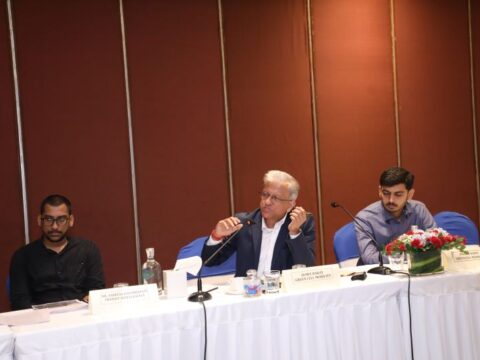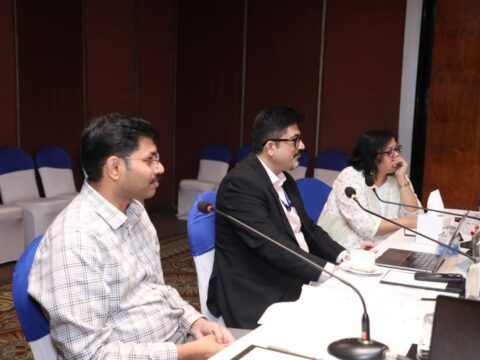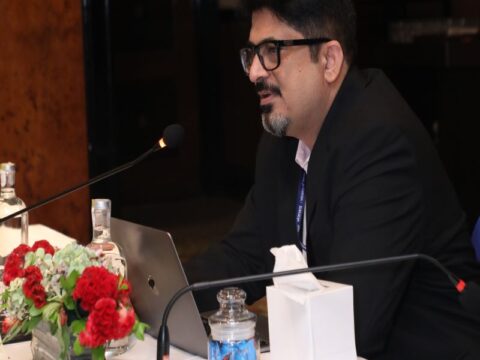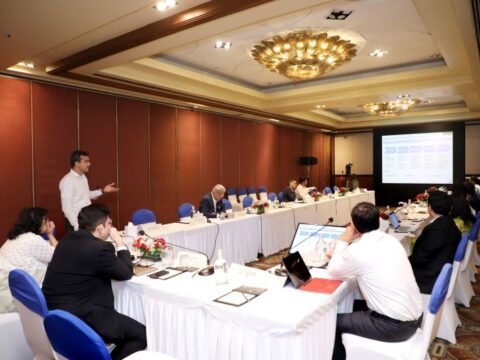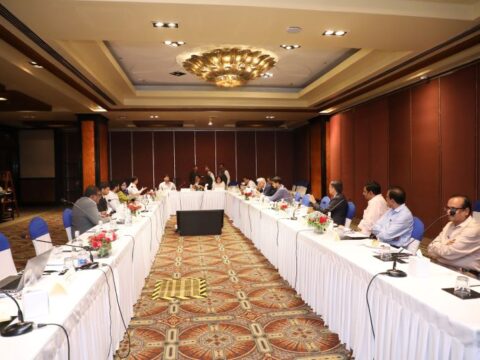India’s push towards electric buses is a vital component of its strategy to meet clean energy goals, necessitating substantial investment to transition 2.3 million diesel buses to electric. The Government of India has initiated several programs, such as the National Electric Bus Program (NEBP) in June 2022, targeting the deployment of 50,000 e-buses by 2027, and the PM E-Bus Sewa Scheme in August 2023, aiming to introduce 10,000 e-buses in Tier 2 and Tier 3 cities. Convergence Energy Services Limited (CESL) is at the forefront of these efforts, working closely with State Transport Undertakings (STUs) and private operators. To address the operational challenges of e-bus deployment, CESL, in collaboration with USAID’s South Asia Regional Energy Partnership (SAREP), organized a stakeholder consultation in Bengaluru on July 11th, 2024. The event, titled “Leading Practices in Electric Bus Operations in India”, focused on sharing best practices for efficient and inclusive e-bus operations.
The primary aim of the consultation was to explore the leading practices in electric bus operations to ensure efficient performance and higher utilization. The discussions covered crucial areas such as strategic planning for e-bus routes, advancements in battery and charging technologies, and improving user experience and inclusivity. The event was designed to create a collaborative platform for stakeholders to exchange knowledge and best practices, thus encouraging the widespread adoption of electric buses throughout India.
Ms. Apurva Chaturvedi, Senior Clean Energy Specialist at USAID Indo-Pacific Office, initiated the consultation with a welcome address, emphasizing USAID SAREP’s role in supporting India’s transition to clean energy through strategic partnerships and knowledge exchange. She highlighted the critical need to adopt best practices in e-bus operations to achieve sustainable urban mobility solutions.
Mr. Vishal Kapoor, MD & CEO of CESL, provided context by showcasing India’s progress in e-bus deployment and the necessity for efficient operational practices. He stressed the importance of meticulous operations planning, the integration of advanced battery and charging technologies, and designing user-friendly and inclusive e-buses to ensure higher utilization rates and an enhanced user experience.
Ramachandran R, MD of BMTC, brought the local experience to the forefront with his insightful remarks. He discussed the unique challenges and successes faced by BMTC in integrating electric buses into Bengaluru’s public transport system. His presentation underscored the importance of tailoring solutions to local conditions and highlighted the significant progress made by BMTC in operational efficiency and user satisfaction.
The consultation included comprehensive presentations and discussions on various critical aspects of e-bus operations. Topics explored included international best practices and its implementation in India, factors essential for efficient e-bus operations such as route optimization, energy demand calculation, and planning for technology transitions. Additionally, sessions covered advancements in battery and charging technology, including different charging strategies, the significance of smart charging, and the features of smart and integrated e-bus project systems. The discussions also highlighted the role of advanced battery management systems and data analytics in optimizing operations. The final sessions focused on enhancing user experience and inclusivity, emphasizing best practices for improving user convenience, ensuring women’s safety, and making e-buses accessible to all societal segments. The importance of designing e-buses with features like ramps, elevators, safety alarms, and digital payment systems was underscored to ensure an inclusive and user-friendly public transport system.
Mr. Rajneesh Rana, Head of Convergence at CESL, concluded the consultation with a vote of thanks. He underscored the importance of collaborative efforts in achieving India’s e-bus deployment targets and expressed gratitude to all participants for their valuable contributions. Mr. Rana highlighted the need for ongoing dialogue and cooperation among stakeholders to implement the best practices discussed and ensure the smooth operations of e-buses nationwide. By engaging key stakeholders, the event identified actionable strategies to enhance e-bus operations, paving the way for a cleaner, greener future in India’s transportation sector.

